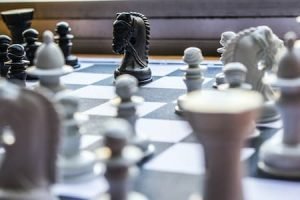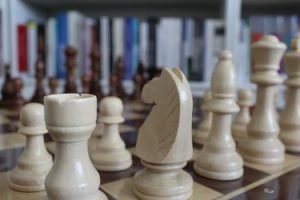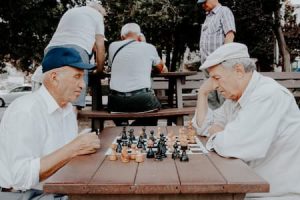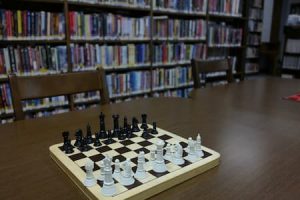Key Facts
When you see a chess position, what is the first thing that comes to your mind? You start to calculate.
Some moves pop up in your brain, but after a conscious effort, you get back to look for the placement of pieces, king safety, material, etc.
Once you judge the position you start providing some concrete lines to your judgment by looking for variations. This whole process is called a calculation.
So how to improve your chess calculation? How to train calculation? Can you always rely on intuition?
Let me show you how to improve chess calculation.

Look for Forcing moves
Forcing moves are easy to calculate and easy to spot in the very first place. The sequence of forcing move can be calculated in huge depth as there are very few branches of variations you have to see. If you see a badminton game, when one player starts to smash, the opponent is not left with any other choice than to defend and send the shuttle to his opponent’s court. A smash can be called a forcing move in badminton. So coming back to chess, Forcing moves are of two types –
- Checks
- Captures
As these moves can be replied to only in specific ways by your opponent it is easy to predict the coming sequence of moves. The more you look for forcing moves the more chances of you dictating the course of the game increase. And once you are in control of the game the only thing you need to do is to look for an opportunity to land the decisive blow.
To train for forcing moves, start solving checkmate in 1 move, checkmate in 2 moves, checkmate in 3 moves etc type of puzzles. This will build you a habit of looking for checks. Once you develop this habit, try to increase the depth by solving till checkmate in 5 moves. For this, I would recommend chess.com.
After you are confident with your calculation of checks, start solving positions where the motif is to win material. Initially the puzzles will have a direct implementation of the idea. Later you will face puzzles where you need to find a defense and then refute it that is the place where you will develop the habit of looking for the opponent’s moves.
From that point onwards you will build a habit of calculating precisely. Also seeing forcing moves helps you to improve your tactics.

Solving Studies
We always say chess improves out-of-box thinking, but how does it actually happen? Studies are the composed positions that one person created based on a theme. A unique feature of studies is it is always white to play and there will always be only one way of winning the position. Most of the time the ideas are counterintuitive. By counterintuitive, I mean the ideas which are not that obvious to our naked eye.
Solving studies increase our creative vision and make us get used to finding unique solutions. Mostly these ideas don’t occur in actual games but one cannot give these reasons for not solving studies.

Solve puzzles OTB
Solving puzzles over the board (OTB) is essential to improve your calculation. When you make moves over the board, they get registered in your subconscious mind and start building a memory pattern. When you are making use of a mouse while solving puzzles, it doesn’t register with the same impact as it does by solving positions over the board. Moving pieces to set up the position can be time-consuming but we are here to look for quality progress and not quantitative temporary success.

Get a training partner
A training partner plays an important role in improving your whole game. When it comes to calculation, if you start hitting a dead end in your calculation, the partner can explain to you why he/she was able to solve the same puzzle which was tough for you. A partner pushes you to try hard and at times can give you sensible hints which can clear your problems.
A partner also notices patterns where you go wrong and he/she will guide you on how to solve it. Let’s say if you are struggling with intermediate moves, and while practicing alone you won’t be able to notice it. Once you have a partner, he/she will definitely point it out and help you to work on it.

Good books to solve puzzles
Books are one of the essential elements in solving puzzles. The author always has done a lot of work on selecting specific positions in his book. The author also mentions in his preface what can one aim from this book. So depending on your level you can select books and start solving them. Below I am recommending a few books which have helped me personally improving my game.
These books are all based on different levels as mentioned in brackets. Each book has its own specialty, like the Woodpecker method focuses on speed plus accuracy. Imagination in chess provides a thinking pattern followed by its executions. Before every chapter, there is a new thinking process given. Even if it doesn’t fall in your category I would still recommend you to go through this book.
Practical Chess Defense is based on the positions which could have been defended but the player did not find the best possible moves. The ideas suggested for Defense are really worth training. The anthology of chess combinations is based on a huge database of positions with one side being able to land the winning blow.